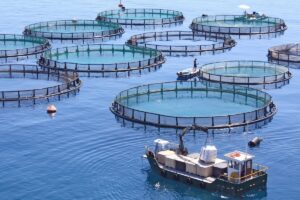The Regenerative Thermal Oxidizer (RTO) market is a crucial segment of the global air pollution control industry, driven by increasingly stringent environmental regulations and a growing focus on sustainable manufacturing practices. As businesses across various sectors strive to minimize Volatile Organic Compound (VOC) and Hazardous Air Pollutant (HAP) emissions, the demand for efficient and reliable RTO systems continues to rise. Understanding the key players and their strategic approaches is essential for businesses looking to invest in RTO technology and for stakeholders tracking market dynamics.
While the RTO market features a mix of global giants and regional specialists, a few key companies consistently stand out due to their technological innovation, comprehensive product portfolios, extensive global reach, and strategic focus on specific industry needs. Let’s delve into some of the leading players shaping the RTO market:
Global Powerhouses with Broad Reach:
-
Dürr AG (Germany): A global engineering and technology group, Dürr offers a wide range of environmental technology solutions, including highly efficient RTO systems. Their strength lies in providing customized solutions for diverse industries like automotive, paint and coating, and printing. Dürr’s strategies often revolve around:
- Technological Advancement: Continuously investing in R&D to improve RTO efficiency, reduce energy consumption, and enhance control systems.
- Global Presence: Maintaining a strong international footprint with manufacturing facilities and service networks across key regions, including a presence that likely serves the Indian market.
- Turnkey Solutions: Offering end-to-end services, from design and engineering to installation and maintenance.
-
JOHN ZINK (U.S.A. / Koch Engineered Solutions): Part of Koch Engineered Solutions, JOHN ZINK is a globally recognized leader in combustion and emissions control technologies. Their RTO offerings are known for their reliability, durability, and ability to handle complex emission streams. Their key strategies include:
- Engineering Excellence: Leveraging deep expertise in combustion to design robust and high-performance RTO systems.
- Focus on Large-Scale Industrial Applications: Catering to industries with significant emission volumes, such as oil and gas, chemical processing, and power generation.
- Service and Support: Providing comprehensive aftermarket services and technical support globally.
-
Taikisha Ltd. (Japan): A major player in air conditioning, industrial ventilation, and environmental systems, Taikisha has a strong presence in the Asian market and beyond. Their RTO systems are recognized for their energy efficiency and compact designs. Their strategies often emphasize:
- Energy Conservation: Developing RTOs with advanced heat recovery mechanisms to minimize operational costs.
- Customization for Specific Needs: Adapting their technology to meet the unique requirements of various industries, including electronics and automotive.
- Regional Focus: Maintaining a strong foothold in Asian markets while expanding their global reach.
Key Players with Strong Regional Presence and Specializations:
-
CECO Environmental (U.S.A.): CECO offers a broad suite of environmental and energy solutions, including various types of thermal oxidizers, such as regenerative catalytic oxidizers (RCOs) and RTOs. Their strategy involves:
- Diverse Technology Portfolio: Providing a range of emission control technologies to cater to different pollutants and flow rates.
- Acquisition-Based Growth: Strategically acquiring companies to expand their product offerings and market reach.
- Focus on Aftermarket Services: Building strong customer relationships through reliable maintenance and support.
-
Anguil Environmental Systems (U.S.A.): Anguil specializes in air pollution control and energy recovery systems, with a strong focus on RTO technology. They are known for their custom-engineered solutions and commitment to customer satisfaction. Their key strategies include:
- Custom Engineering Expertise: Designing RTO systems tailored to specific application requirements and challenging emission streams.
- Strong Customer Focus: Building long-term relationships through responsive service and support.
- Sustainability Emphasis: Promoting energy-efficient RTO designs and heat recovery options.
Strategies for Success in the RTO Market:
Beyond their individual strengths, these leading companies often employ similar overarching strategies to maintain their competitive edge:
- Continuous Innovation: Investing heavily in research and development to improve RTO efficiency, reduce energy consumption, enhance reliability, and explore new technologies like electric RTOs.
- Focus on Sustainability: Developing more energy-efficient and environmentally friendly solutions, aligning with the growing global emphasis on reducing carbon footprints.
- Customization and Flexibility: Offering tailored RTO systems to meet the specific needs of diverse industries and applications.
- Strong Aftermarket Support: Providing comprehensive maintenance, repair, and upgrade services to ensure long-term customer satisfaction and recurring revenue streams.
- Strategic Partnerships and Acquisitions: Collaborating with other technology providers or acquiring companies to expand their capabilities and market access.
Implications for the Indian Market
While the headquarters of these global leaders are located outside India, their influence on the Indian RTO market is significant. Many of these companies have established sales offices, manufacturing facilities, or partnerships within India to cater to the growing industrial sector and tightening environmental regulations. For industries in across India, this means access to advanced RTO technologies and global expertise. Businesses in the region should consider the following:
- Evaluate Technology Needs: Understand the specific VOC and HAP emission challenges and identify RTO solutions that align with their requirements and budget.
- Consider Local Presence and Support: Prioritize manufacturers with a strong local presence for easier installation, maintenance, and technical support.
- Assess Long-Term Cost of Ownership: Consider not just the initial capital investment but also the operational costs, including energy consumption and maintenance requirements.
- Stay Updated on Regulatory Changes: Keep abreast of evolving environmental regulations in India to ensure compliance and future-proof their investments.
Conclusion:
The RTO market is driven by a combination of stringent environmental regulations, increasing industrial activity, and a growing awareness of sustainability. The leading players highlighted above are at the forefront of innovation, offering a range of solutions to meet the diverse needs of industries worldwide. By understanding their strengths, strategies, and the evolving market trends, businesses can make informed decisions when investing in RTO technology to achieve their emission control goals and contribute to a cleaner environment.



